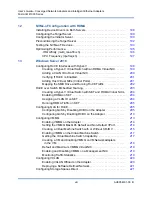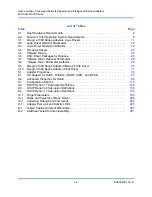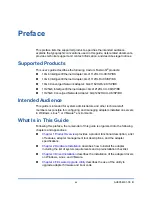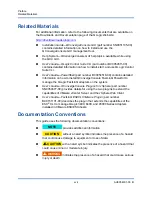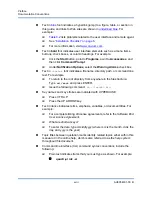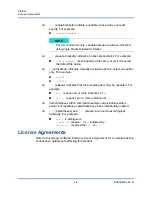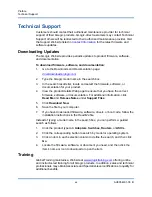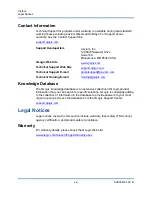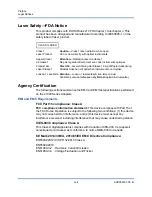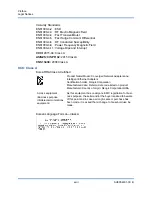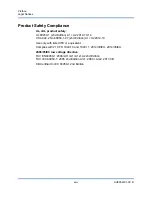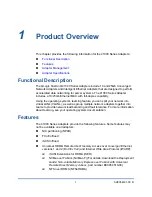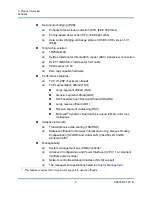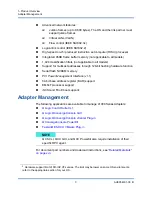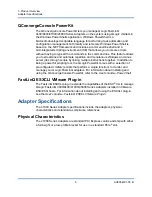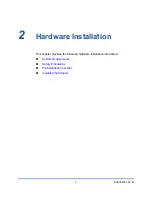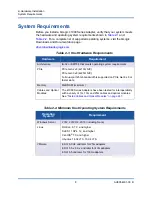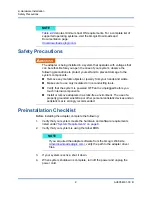
Preface
Documentation Conventions
xviii
AH0054601-00 B
Text in
blue
font indicates a hyperlink (jump) to a figure, table, or section in
this guide, and links to Web sites are shown in
underlined blue
. For
example:
Table 9-2
lists problems related to the user interface and remote agent.
See
“Installation Checklist” on page 6
.
For more information, visit
www.cavium.com
.
Text in
bold
font indicates user interface elements such as a menu items,
buttons, check boxes, or column headings. For example:
Click the
Start
button, point to
Programs
, point to
Accessories
, and
then click
Command Prompt
.
Under
Notification Options
, select the
Warning Alarms
check box.
Text in
Courier
font indicates a file name, directory path, or command line
text. For example:
To return to the root directory from anywhere in the file structure:
Type
cd /root
and press ENTER.
Issue the following command:
sh ./install.bin
Key names and key strokes are indicated with UPPERCASE:
Press CTRL+P.
Press the UP ARROW key.
Text in
italics
indicates terms, emphasis, variables, or document titles. For
example:
For a complete listing of license agreements, refer to the
Software End
User License Agreement
.
What are
shortcut keys
?
To enter the date, type
mm/dd/yyyy
(where
mm
is the month,
dd
is the
day, and
yyyy
is the year).
Topic titles between quotation marks identify related topics either within this
manual or in the online help, which is also referred to as
the help system
throughout this document.
Command line interface (CLI) command syntax conventions include the
following:
Plain text indicates items that you must type as shown. For example:
qaucli -pr nic -ei





